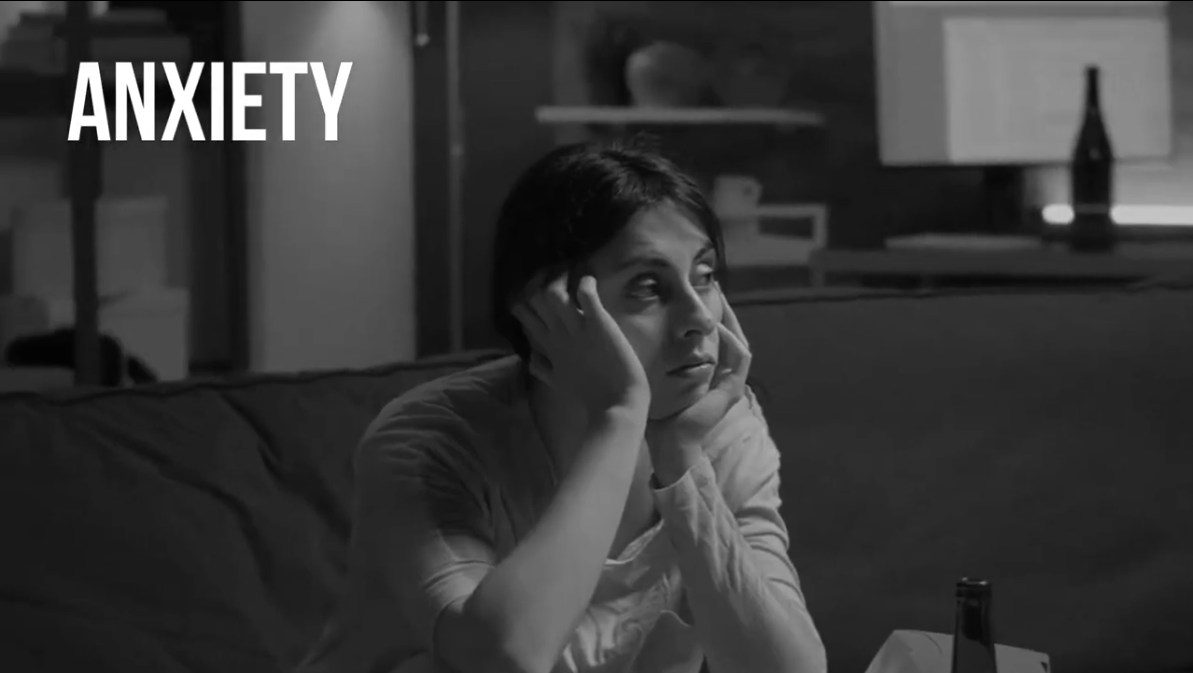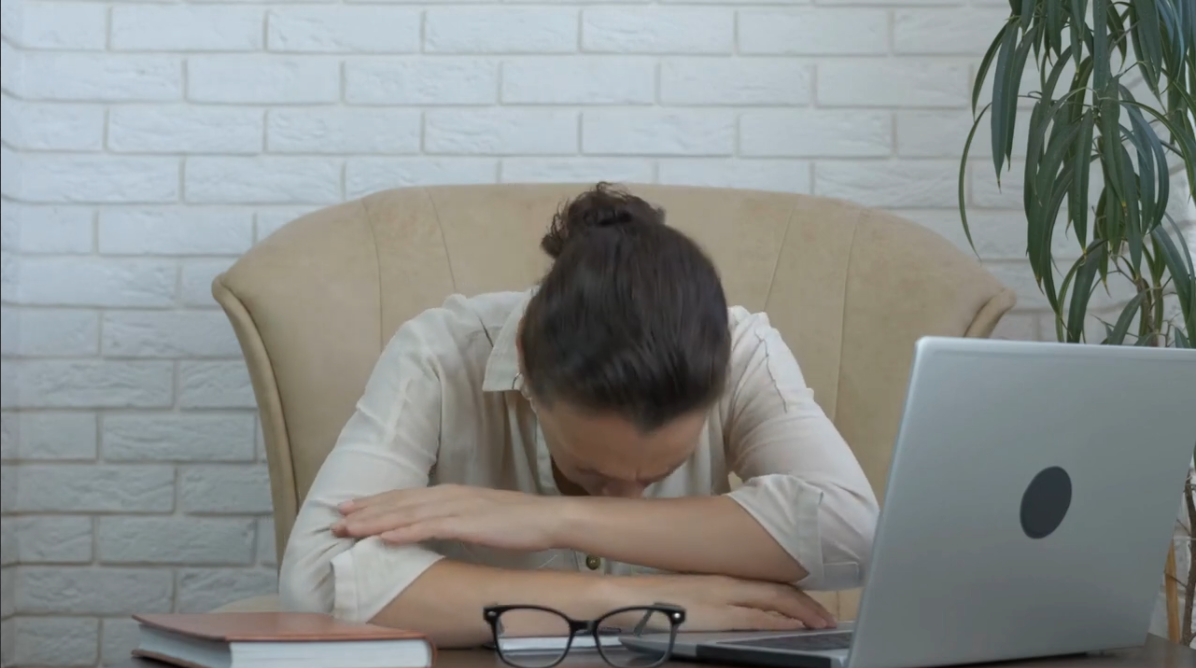9 SIGNS YOU MAY BE IN PERIMENOPAUSE - Part 1
Are you in your late 30s or 40s, wondering if you're in perimenopause?
Maybe you are experiencing strange, weird changes, such as erratic emotions, foggy brain, pains, or subtle to extreme changes to your body, and you're not quite sure what's on earth going on... This post is going to help you.
I'm going to share 9 signs of perimenopause you should look out for in Part 1 and Part 2 posts.
Some are less known and have not openly discussed health symptoms… until now.
And what's interesting for you are real-life examples of each perimenopause sign that many women experience, including my clients.
In this Part 1, you'll learn the first 5 common signs of perimenopause.
You'll get a pretty good idea of whether the challenges you may notice are related to perimenopause so that you can take the right course of action.
And you need to know how these perimenopause signs coming together may impact all areas of your life.
I created this post to help you prepare physical changes with more ease, so you don't have to waste your time guessing, suffering, and wondering what this all means.
My name is Miyako Hazama, a Menopause Energy Expert. I help busy professional women in perimenopause/menopause relieve their challenges by tapping into the little-known Asian Energenic fountain of youth.
Are You in Perimenopause?
You may be wondering, "Am I in perimenopause?"
So, let's briefly discuss what "perimenopause" is and when it starts.
"Peri" in Greek stands for "around," so perimenopause means "around menopause."
Perimenopause begins several years before a woman's last period.

For most women, it typically begins at the age of 40 to 44. But actually, women start perimenopause at different ages.
Because of recent early-life hormonal shifts, some women can start noticing changes even in their mid-thirties.
What is happening to your hormones during perimenopause?
The level of estrogen - the primary female hormone - in your body rises and falls unevenly. When the hormone levels begin to change, you may experience irregular, shorter/longer, heavier, or lighter menstrual cycles than usual, and spacing between periods might change. Sounds familiar?
First 5 common signs of Perimenopause

1. Hot Flashes and Night Sweats
Have you ever felt like your ears, face, and hand are burning up, and everything you touch gets sweaty?
These are the classic symptom of menopause, and you might be surprised when this happens to you at this early stage.
But according to the Harvard medical school publishing, an estimated 35%–50% of perimenopausal women suffer sudden waves of body heat with sweating and flushing that last 5–10 minutes often at night and during the day.
Intensity varies from a sense of warmth to a feeling of being on fire. It could cause flushing on the face, neck, and chest, sweating, or chills lasting 1-5 min.
A woman I recently talked to said she had to take cooling breaks between tasks, so everything took her so much longer to do, and it was just so frustrating.
And this could happen at a most inconvenient time, such as during a speech, job interview, or a family event.
Frequency varies widely. Some women have a few over a week; others may experience 10 or more in the daytime, plus some at night.
So you don't want to book a room without air conditioning when you travel.

2. Sleep
Do you feel like you have trouble sleeping?
I heard a woman say, "Does anyone else sleep for an hour only to wake up hot like your breath has been taken away?"
Yes, sleep problems often come together with hot flashes or night sweats. But sleep sometimes becomes unpredictable without them.
According to data from the National Institutes of Health, sleep disturbance shows up in 39% to 47% of perimenopausal women.
You may have difficulty falling asleep; 30 minutes or longer is not normal.
You may also awaken in the middle of the night and struggle to fall back to sleep, or you might wake up early in the morning even though you are still tired.
How about you? Do you think you're having a good sleep?
Lack of sleep affects your mood and vitality and can result in systematic inflammation and metabolic dysfunction. So that leads to the third symptom.

3. Mood Swings and Anxiety
Have you ever felt like feeling pretty good, then BAM! out of nowhere, crippling anxiety suddenly catches you, and you feel so terrible overall?
You might notice a rollercoaster of emotions and feel out of control.
It could come with brain fog, feelings like disassociation or forgetfulness, and many women feel scared of getting dementia at this early stage.
Mayo Clinic reports that mood swings, irritability, or increased risk of depression may happen during perimenopause. The cause of these symptoms may be that hot flashes disrupt your sleep. Mood changes may also be caused by factors unrelated to perimenopause's hormonal changes.
Because during the perimenopausal years, everyone has a family to care for, and there are financial and professional challenges. Those add to the changing body, and it can all be stressful.
Sometimes driving long distances could paralyze you because of the anxiety you've experienced in the car.
As a result, it feels like you suddenly lost motivation, and what's even worse is feeling like you've failed your family and yourself.
But don't blame yourself. It's helpful to know that other women are also experiencing it; this is not your fault.

4. Fatigue
Everyone feels tired from time to time, and it's life. But have you been experiencing that you're tired even to do your hair?
You want to dress up and look good, but you just can't be bothered. It feels like too much work.
Or, no matter how much you rest, it won't go away.
Or you are exhausted for days, and it seems like you are accumulating that heaviness.
These were exactly what many clients experienced.
This often comes with sleep problems or fogginess and could be with a headache.
Many women feel like they don't have the energy to cook or to look after the house, and even making simple decisions becomes a huge challenge.
How about your case?
I can go on and on, but what's essential for you to know is that feeling tired is not an illness; it's a symptom that often comes with perimenopause.
Changing hormones in perimenopause may contribute to feelings of tiredness, but profound fatigue may come from other menopausal symptoms. As you may know, a collection of minor stressors can also build up fatigue.
If you feel like you don't want to see your friends or family anymore, which is pretty unusual for you, and you can't find humor in anything that you used to find funny, you can think of it as typical fatigue that shows up in perimenopausal women.

5. Migraine Headaches
If you keep getting horrible migraines and Excedrin is your best friend, it may be a sign of perimenopause.
Sometimes you have a migraine in the morning and get another in the evening, and you can't tell when it appears.
I had a client who experienced migraines together with sensitivity to light and sound, nausea and vomiting, sweating and chills, and fatigue. So she couldn't possibly go to work.
And these are typical.
Migraines could last for a few hours or, in extreme cases, up to three days.
The changes in estrogen levels during perimenopause may cause hormone headaches to increase, and they can be long and painful episodes.
This can be hard for the woman suffering and her family and partner who have to care for her.
Hot flushes and night sweats disrupt sleep, triggering additional migraines.
Have you ever experienced all these coming together and compounding?
You also want to know that migraines usually begin with a triggering event other than hormones, such as stress (this is a big one), changes in sleep, eating patterns, or eye strains.
Many women will see these headaches stop once menopause is reached, but some women will continue to have headaches even after menopause.
A Recap of the first 5 Signs of Perimenopause
Now we've covered the first 5 common signs of perimenopause that I promised you.
Let's recap quickly:
- Hot flashes and Night sweats
- Sleep
- Mood Swings and Anxiety
- Fatigue
- Migraine Headaches
Have you noticed any of these happening to you?
What other symptoms have you been struggling with? Remember, there is no one universal menopause syndrome, and every woman is different.
Quite frankly, just these 5 symptoms seem a lot. But in fact, some report shows that there are 34 symptoms of menopause.
So in the Part 2 video, "9 SIGNS YOU MAY BE IN PERIMENOPAUSE - Part 2", I will show you the following 4 symptoms that are particularly important for you to know.
I created Menopause Wonder YouTube Channel as a sacred space where women can share openly, knowing they are not alone.
It's time we talk about solutions and how to live our prime years with more ease & joy.
Remember that you deserve to enjoy and thrive in your prime years without losing your true self.
References
- “Perimenopause: Rocky Road to Menopause” by Harvard Health Publishing
(https://www.health.harvard.edu/womens-health/perimenopause-rocky-road-to-menopause)
- “How Does Menopause Affect My Sleep?” by Johns Hopkins Medicine
(https://www.hopkinsmedicine.org/health/wellness-and-prevention/how-does-menopause-affect-my-sleep)
-
“Feeling Tired? What Is Perimenopause Fatigue and How to Treat It” by Alloy
(https://www.myalloy.com/blog/what-is-perimenopause-fatigue)


